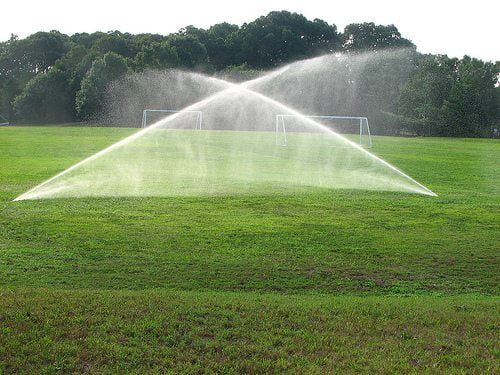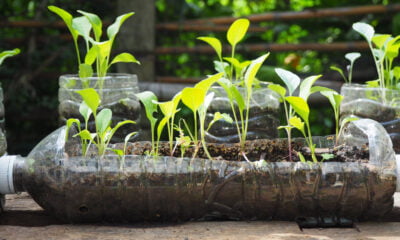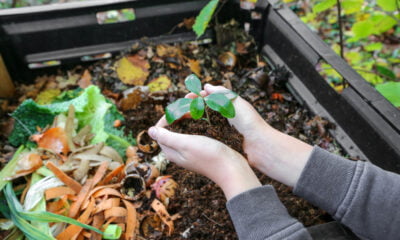

Environment
How Homeowners are Turning to Eco-Friendly Lawn Care Solutions
Ironically enough, many homeowners do more harm than good when caring for their lawns. As a result, they’re actually growing their carbon footprint and negatively impacting their property. But there are also plenty of homeowners who are committed to eco-friendly lawn care solutions. Learn how you can fall into the latter category.
Four Ways to Encourage Eco-Friendly Lawn Care
Most people think about cost and simplicity when it comes to lawn care. They want the cheapest and quickest solution so they can get the job done and focus on “more important” things. But the fact of the matter is that lawn care is important. While cheap and quick are enticing, spend some time thinking about sustainability as well.
- Think Before You Crank
If you just crank up the old lawnmower and start cutting your grass without any rhyme or reason, chances are, you aren’t giving your lawn what it needs to thrive and truly be healthy.
“The schedule at which you mow and the height will have an impact on the quality of the turf,” Fischer Environmental notes. “The more leaf that is exposed, the more energy that can be transferred to the root system and this will make for stronger roots. Different factors like the type of grass and specific environmental conditions can help to determine the proper mowing schedule and height, so it is recommended that you consult with your lawn care professional on these matters.”
- Practice Smart Watering
Did you know that, in the summer, lawns account for roughly 40 to 60 percent of residential water usage? That’s a massive amount of water being wasted.
There are a number of things you can do to reduce your need for using so much water. We’ll call these “smart watering habits.” Consider a few:
- Always water early in the morning or in the evening after the sun has gone down. This allows more of the water to seep into your lawn, as opposed to evaporating in the hot air.
- If you’re using sprinklers, make sure you spend some time tinkering with their orientation. There’s no sense in sending half of your water into the street.
- Try mowing your lawn higher. The higher the blades are, the less water the root system needs to thrive.
- Making sure that the sprinklers are properly maintained is also important. For example, winterizing the system before the ground freezes ensures that no damage is done during the colder months.
- In addition, when the time comes to open the irrigation system again in the spring, it should be done in a manner that will not damage any of the components.
- Backflow testing and regular sprinkler repair and service are of the utmost importance, as they ensure that the irrigation system as a whole is functioning at its highest level, saving water and money in the process.
Simple little tricks like this can save you gallons of water per week, which adds up over the course of a year.
- Put Grass Clippings to Use
While many people believe that letting clippings decompose on your lawn causes a thatch buildup on the surface, this simply isn’t true.
“Instead of bagging up grass clippings and sending them to the landfill, invest in a mulching blade for your mower and leave the clippings on your lawn,” compost expert Beth Huxtra suggests. “As they decompose, they add valuable organic matter to the soil and about 2 pounds of nitrogen per 1,000 square feet each season, which means you have to spend less time and money on fertilizing.”
- Try Biopesticides
While you should avoid traditional insecticides (like dichlorodiphenyltrichloroethane, better known as DDT), which can be harmful to pets and people, there are other healthy solutions. Specifically, you should try biopesticides, which are made from natural occurring elements and actively work to control insect populations (rather than kill them).
How Are You Currently Doing?
If you aren’t currently doing a good job of being an eco-friendly steward of your property, don’t stress out about it. Now’s the perfect time to make a change and start adopting sustainable habits that allow you to cultivate healthier grass, save water, and return nutrients back into the ground.


 Environment12 months ago
Environment12 months agoAre Polymer Banknotes: an Eco-Friendly Trend or a Groundswell?

 Features11 months ago
Features11 months agoEco-Friendly Cryptocurrencies: Sustainable Investment Choices

 Features12 months ago
Features12 months agoEco-Friendly Crypto Traders Must Find the Right Exchange

 Energy11 months ago
Energy11 months agoThe Growing Role of Solar Panels in Ireland’s Energy Future




























